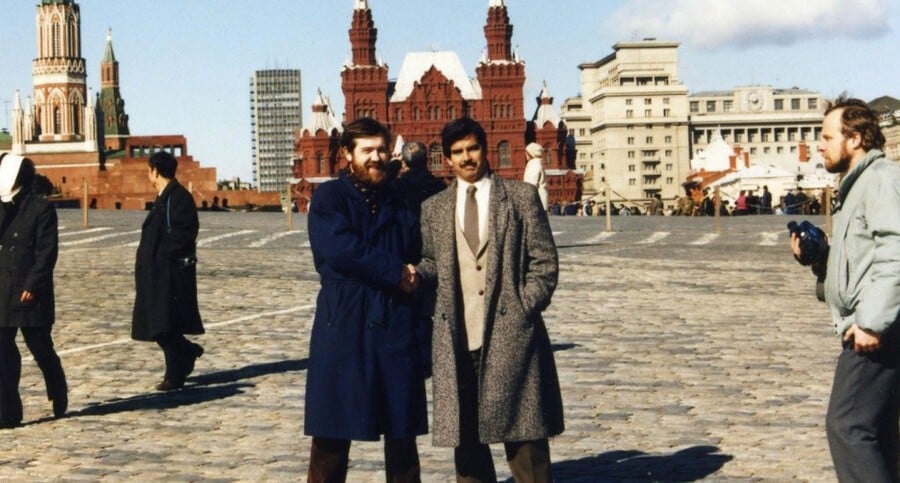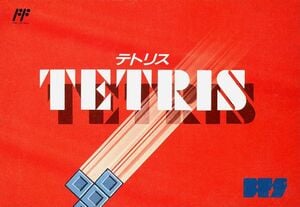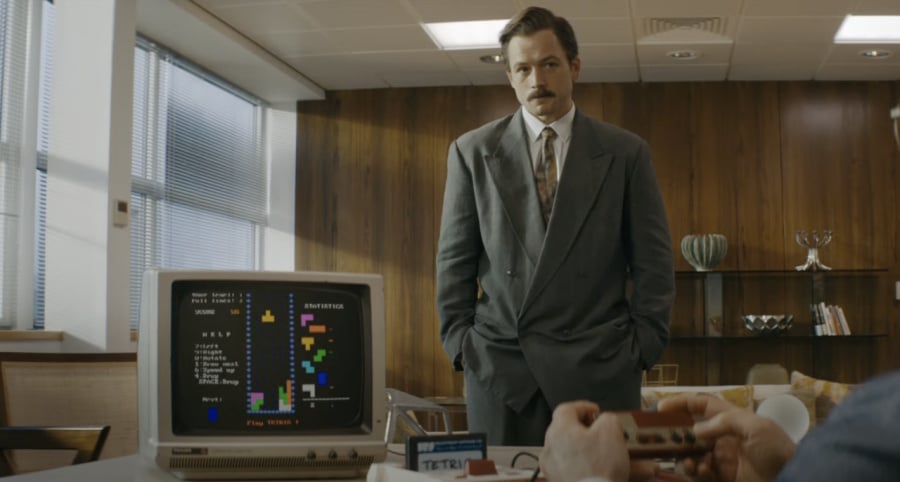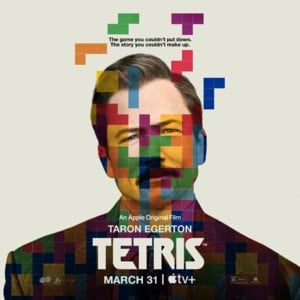
The following article includes quotes taken from a most recent conversation with Henk Rogers, as well as some insights from a previous interview from 2016.
In 1989, the European video game designer and entrepreneur Henk Rogers stood before the doors of the Ministry of Software in Moscow, Russia. He had a single goal for the visit: to secure the handheld distribution rights for Tetris, a popular computer program created by Russian scientist Alexey Pajitnov.
Prior to the trip, Rogers had shaken hands on a lucrative deal with Nintendo of America that would see Tetris packaged alongside the Nintendo Game Boy in the US, but thanks to a confusing mess of licensing and sublicensing, he discovered that he still needed to obtain the proper permissions in order to release the game on handhelds.
With $2 million worth of units being prepped for manufacture and his in-laws’ property being used as collateral, failure was not an option for him. So, he jumped on a plane across the "Iron Curtain" to cut a deal with its creators, negotiating against other potential licensors like Mirrorsoft's Kevin Maxwell and Andromeda's Robert Stein. This trip would eventually go down in history, with Rogers not only picking up the handheld rights but also the console rights on behalf of Nintendo. This led to an intense legal battle back in the US, with Mirrorsoft even requesting the then-general secretary of the Soviet Union, Mikhail Gorbachev, to intervene.
As Rogers puts it today, it "isn't a normal story for a computer game," and that arguably explains why Hollywood has been so eager to make a film about it. Now, with Apple's take on the story set to release later this month on Apple+ (March 31st), we thought what better time to sit down with Rogers to chat about Tetris, his thoughts on the film, and what advice he gave the filmmakers.
The 'Tetris' Story
Before getting wrapped up in the battle for Tetris’s rights, Rogers already had a few notable popular games to his name. Years earlier, he had developed one of the formative Japanese RPGs Black Onyx and had published a simple Go game called Igo: Kyuroban Taikyoku for the Nintendo Famicom with his company Bullet Proof Software. After a chance encounter, however, at the 1988 Winter Consumer Electronics Show in Las Vegas with Spectrum Holobyte's version of Tetris, he found himself enamoured with the simple-yet-satisfying gameplay of the falling-block game.

"I found myself in line for the fourth time at a machine," he tells us. "It seemed like a simple game, but simplicity never bothered me. Simplicity, to me, is an asset. [It] worked for me. I found I was hooked on this game. I kept coming back to it.”
Various companies had struck deals for the rights to Tetris, with Rogers himself grabbing the rights to distribute Tetris on home consoles and computers in Japan from the Atari Games subsidiary Tengen. All of these deals, though, hinged on a single contract that Andromeda's Robert Stein had made with Elektronorgtechnika (ELORG), the organization in charge of exporting Tetris and other Soviet software, and Stein's deal with the Russians would soon find itself on shaky ground. ELORG was dissatisfied with unpaid royalties from Andromeda, leading Stein to travel to Moscow to renegotiate with the Russians.
Meanwhile, both Mirrorsoft and Bullet Proof Software were chasing the handheld rights to the game, with Rogers having convinced Nintendo of America president Minoru Arakawa to pack Tetris in with the new handheld in North America.
"I was talking to Nintendo saying, ‘Look, Tetris is the perfect game for your machine. You should pack it in,’” says Rogers. “I was in the middle of that discussion when Nintendo gets a call from [Gilman] Louie [at Spectrum Holobyte] saying, ‘I can get you the Game Boy rights.’ Basically, I knew that nobody on that end had those rights – not Mirrorsoft, not nobody – because I had tracked down those rights by then.”
Suspicion grew among the sub-licensors about Stein's arrangement with the Russians, which resulted in Rogers and Kevin Maxwell travelling to Moscow in order to try and deal directly with ELORG. When Rogers arrived in Russia, he hired an interpreter, who showed him to ELORG's building but refused to enter with him. Rogers, having come this far, was not about to quit or go home yet. Instead, he walked straight into the building and managed to pull someone aside.
“It was like walking into an ant’s nest because people don’t walk in off the street," says Rogers. "It’s not like that. Everyone has an appointment and I was supposed to go to a window and present my credentials and I didn’t. I just talked to a random person and said, 'I’d like to speak to somebody about Tetris', and I showed him my little NES version of the game.
“This little old man came walking down the stairs a little while later, and he said, ‘Who are you?’ I introduced myself, ‘I’m the publisher of this game in Japan.’ He looked at the box. He turned it over and he said, ‘We never licensed this to anyone.' I had 200,000 cartridges in manufacture at $10 a pop. That’s $2 million cash that I’d given Nintendo. Where did I get the cash? I got the cash by using all of my in-laws’ land as collateral, so I was in some real deep kimchi."
What followed was an intense period of negotiations, with Mirrorsoft, Andromeda, and Rogers going back and forth with the Russians to try and secure the handheld rights. Unable to compete against the might of Andromeda and Mirrorsoft, Rogers did something the larger companies wouldn’t in order to advance negotiations in his favour: he decided to offer ELORG a slice from the cartridge sales rather than the flat wholesale price that Mirrorsoft and Andromeda were offering.
This would be more valuable to ELORG than in the long run, but would significantly reduce Rogers’ own cut. This trump card ultimately won him the handheld rights and led to the businessman snagging the console rights from under the noses of Mirrorsoft and Andromeda.

Making A Movie
In the past, the story of Tetris has been recounted on many occasions times, including most notably in a 2004 BBC documentary called Tetris: From Russia With Love. According to Rogers, it was that documentary that kickstarted the interest in adapting the behind-the-scenes story of Tetris into a film, proving its potential for drama and intrigue. But it wasn't until a couple of years ago that a project really started to take shape.
The Scottish director Jon S. Baird (Filth, Stan & Ollie) and the screenwriter Noah Pink (Genius) are two of the lead creatives behind this energetic, new retelling of the Tetris story, which attempts to cram the complex licensing tale into the format of a two-hour movie.

Rogers, at first, was sceptical whether they could pull it off, being particularly worried about some of the Hollywood-isms that had been added in order to heighten the drama of the story. Nevertheless, he seems to be more than on board now, putting aside any initial concerns after multiple viewings.
"I've watched it five times," Rogers excitedly tells us. "I think the movie is brilliant. It’s a movie-movie. I was terrified the first time because I read the script, and in the script, there’s a lot of Hollywoodish stuff in there, but in order to get the audience through a year-and-a-half of negotiations and God knows what else, they had to speed things up. And I’m amazed they could actually get the complicated story – like the licensing rights, who wants what, and so on – across in such a short time. But they did a brilliant job.
"They developed the characters. All of the characters. Not just me, not just my interpreter, every character in there. Robert Maxwell, Kevin Maxwell, all of these characters, they’re developed to make them a certain way. And you have to get that across in a very short time, what person is this, so there are all these little character-building things in there to show. Even me. You know, I’m like, ‘I never did that.’ But oh, okay, I did something just as stupid – it just took longer."
Besides some of these Hollywood-isms, including a high-speed car chase (created via CGI) and Howard Lincoln's overdramatic unveiling of the Nintendo Game Boy, Rogers also had some concerns about the actor chosen to portray him. In the film, the English actor Taron Egerton takes on the role of Rogers, with Nikita Yefremov playing Pajitnov and Toby Jones and Anthony Boyle portraying Robert Stein and Kevin Maxwell, respectively.
Egerton had previously played Elton John and Eddie the Eagle in biopics modelled after their lives, demonstrating somewhat of a knack for creating convincing performances based on real people. However, according to Rogers, he wasn't immediately convinced that he was the right person for the role: mainly because he looks nothing like him.
"My initial thought was this guy doesn’t look anything like me," Rogers tells us, laughing. "But he's a great actor. I’d already seen him play Elton John, and I went to see The Kingsman. He’s brilliant in The Kingsman – Oh my god! He’s like Jason Bourne or something. So, I said, ‘Wow, this is going to be an exciting movie.’"
Rogers met with the actor on Zoom to let Egerton get to know him a little better and offered some more information about his life. And consulting with Egerton wasn't his only input into the film. Together with Pajitnov, the pair gave the filmmakers insight into what Russia was like to visit at the time, hoping it would pay off in the finished movie.
"I really wanted to get them to get the feeling of the Soviet Union across," says Rogers. "Because it is kind of like going to North Korea today and sneaking into a ministry. You could easily end up in prison or breaking some law. And the people in the ministry and Alexey were all breaking laws by talking to me, so under those conditions, all of us are breaking laws and somehow, I managed to escape without ending up in a Gulag. I think that was brilliant the way they got it across. Of course, they’re squeezing a year and a half of my life into two hours, so they have to speed things up a lot. It was like watching my life in fast forward."
If you want to watch Tetris, it will be available to stream on Apple TV+ from the 31st March.



